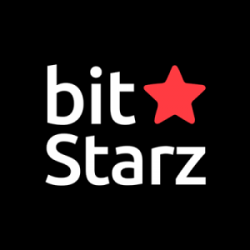GoodLuckMate – Your Lucky Online Gambling Guide!
Gambling Sites Reviews, Game Guides, Bonuses & More!- 18+ play responsibly · terms apply ·Visit CasinoOur ratingRead Review
BitStarz is the best and most popular crypto gambling site on the market and among the casinos with the highest GoodLuckMate score. One of the main strengths of this brand is the fantastic game lobby filled with more than 4,000 titles by over 50 providers. You can find both the industry’s most popular as well as the latest releases. BitStarz is known as a generous gambling site where both new and regular customers get various bonuses, perks, and rewards. Mobile play, top support, and crypto and fiat banking methods round up the long list of BitStarz player benefits.
Great customer supportPhone support not availableEasy to use interfaceNo sportsbookGreat selection of games - 18+ play responsibly · terms apply ·Visit CasinoOur ratingRead Review
While billed as a Bitcoin casino, there’s much more to 7BitCasino than simply being able to deposit, withdraw, and play casino games using the world’s most popular cryptocurrency. In fact, as you’ll see during this in-depth review, 7BitCasino carries an excellent range of games from some of the best providers in the iGaming business, provides a fantastic VIP program for the high rollers amongst you, and features way more payment methods for those who’d rather not get into crypto.
Customer support availableNo sportsbookAvailable on desktop & mobileDeposit feesImpressive live casino section Owned and operated by Dama N.V., KatsuBet is an online gambling platform offering players a wide range of entertainment options. Some of the engaging releases you will come across here include slots and live dealer games that offer an immersive gambling experience. To help you explore these games are numerous incentives, starting with the welcome package that features a cash bonus and free spins. A comprehensive VIP program gives players a chance to join an exclusive club that offers high-grade perks. In addition to the games and promotions, the platform is compatible with mobile devices.
Live chat availablePhone support not availableAvailable on desktop & mobileLow max withdrawal limitsTrusted casino license
Play All Your Favorite Slots for Free!
Big Win Videos
Reviews from industry experts

























